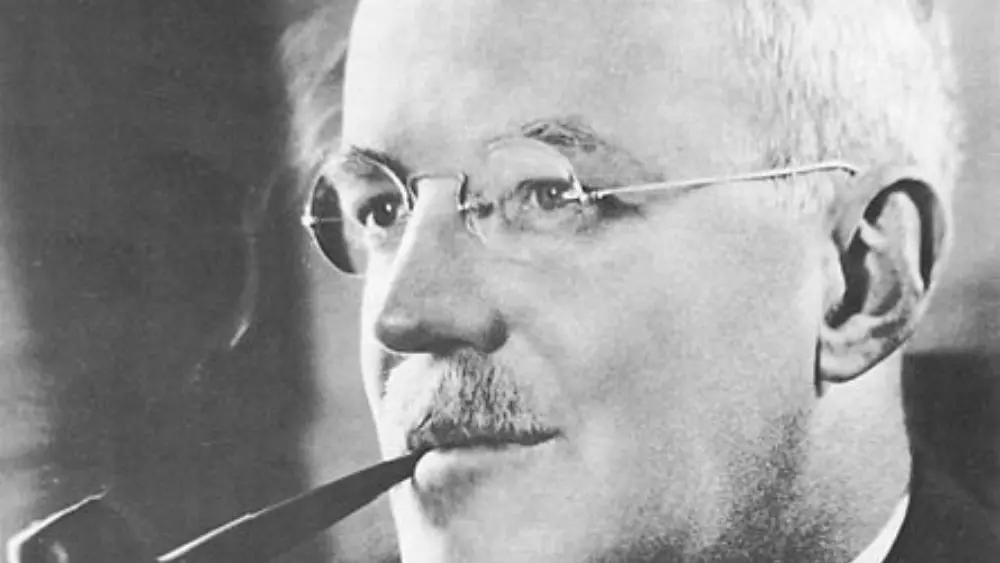Allen Welsh Dulles, born on April 7, 1893, in Watertown, New York, was a key figure in shaping American intelligence during the Cold War era. As the longest-serving Director of the Central Intelligence Agency (CIA), Dulles made a lasting impact on the intelligence community.
Early Life and Diplomatic Beginnings
Allen Dulles’ early life was profoundly shaped by his family’s deep involvement in diplomacy and international affairs. Born into a family with a rich legacy of diplomatic service, Dulles was exposed to the intricacies of global relations from a young age. This early immersion laid the groundwork for a career dedicated to public service and international relations. While he initially pursued a career in law, Dulles eventually transitioned to diplomatic roles, a move that would prove instrumental in shaping his understanding of global affairs and laying the foundation for his later work in intelligence.
Dulles’ diplomatic beginnings provided him with valuable experience and insights into the complexities of international relations. His early exposure to the intricacies of diplomacy not only honed his analytical skills but also cultivated a deep understanding of the nuanced geopolitical landscape. These formative experiences in diplomatic circles became a crucial asset in Dulles’ later intelligence career, where he would play a pivotal role in shaping the United States intelligence apparatus during critical periods of the Cold War.
Allen Dulles: World War II Intelligence
Allen Dulles emerged as a key figure in intelligence operations during World War II, playing a critical role in the clandestine activities that shaped the course of the conflict. Stationed in Switzerland, Dulles undertook covert operations that went beyond traditional intelligence gathering. His responsibilities included liaising with anti-Nazi elements and conducting intricate intelligence activities in the heart of Europe. Dulles’s work was instrumental in fostering relationships with resistance groups and obtaining valuable information that contributed significantly to Allied intelligence efforts. His strategic acumen and ability to navigate complex situations during this period set the stage for his post-war career, marking the beginning of a trajectory that would eventually lead him to become a central figure in shaping the United States intelligence community during the Cold War.
Dulles’s experiences in World War II demonstrated his aptitude for covert operations and his understanding of the geopolitical landscape. His contributions to intelligence gathering in Switzerland showcased his dedication to the Allied cause and his effectiveness in navigating the intricate world of espionage. The skills and insights he gained during this critical period laid a foundation for his later role as the head of the Central Intelligence Agency (CIA) and solidified his reputation as a masterful intelligence operative.
Founding the CIA
In the aftermath of World War II and amidst the growing tensions of the Cold War, the Central Intelligence Agency (CIA) was founded, and Allen Dulles was appointed as its first civilian Director in 1953. Dulles assumed the helm of the CIA during a critical juncture in global affairs, where intelligence and covert operations played a pivotal role in the geopolitical landscape. Under his leadership, the CIA became a central player in the United States’ efforts to counter the perceived threats posed by the Soviet Union and communism. Dulles’ strategic vision for the agency emphasized the importance of intelligence gathering, covert operations, and counterintelligence, setting the stage for the CIA’s role in shaping U.S. foreign policy during the Cold War.
As the inaugural civilian Director of the CIA, Dulles navigated the challenges of the Cold War with a focus on expanding the agency’s capabilities and influence. His tenure was characterized by an emphasis on secrecy, clandestine operations, and intelligence analysis. Dulles’ leadership during the formative years of the CIA laid the groundwork for the agency’s role as a key player in national security and intelligence, shaping its mission and operations for years to come.
Allen Dulles: Cold War Espionage and Covert Operations
Allen Dulles’s leadership as Director of the CIA unfolded during the height of the Cold War, a period marked by intense ideological rivalry between the United States and the Soviet Union. In response to the perceived threats posed by communism, Dulles spearheaded numerous covert operations aimed at countering Soviet influence and advancing American interests globally. Under his direction, the CIA became a central player in the world of espionage, engaging in covert actions to gather intelligence, influence political landscapes, and promote anti-communist activities.
Dulles’s approach during the Cold War was characterized by a strategic emphasis on the use of covert operations to confront the challenges posed by the Soviet Union. The CIA, under his guidance, conducted a range of activities, from intelligence gathering to influencing foreign governments in alignment with American interests. Dulles’s leadership style was marked by a commitment to the principles of containment and the strategic use of covert means to protect American security and interests in the global struggle against communism. The era of Cold War espionage and covert operations under Dulles’s direction shaped the trajectory of U.S. intelligence activities and left a lasting impact on the geopolitical landscape of the time.
Eisenhower’s “Eyes and Ears”
President Dwight D. Eisenhower held Allen Dulles in high regard, influentially referring to him as his “eyes and ears” in matters of intelligence. This characterization highlighted the deep trust and close working relationship between the President and the Director of the CIA. Dulles played a central role in providing Eisenhower with crucial intelligence insights, assessments, and recommendations, becoming an integral figure in shaping U.S. foreign policy during the unruly years of the Cold War. The synergy between Dulles and Eisenhower emphasized the pivotal role the CIA played as a key instrument in the formulation and execution of American strategic objectives on the global stage.
The designation of Dulles as Eisenhower’s “eyes and ears” underscored the importance placed on intelligence and covert operations in navigating the challenges posed by the Cold War. This close partnership facilitated a dynamic and responsive approach to the rapidly evolving geopolitical landscape, enabling the United States to make informed decisions in the face of complex international dynamics. Dulles’s influence as a trusted advisor to the President solidified the CIA’s standing as a critical component of U.S. foreign policy, showcasing the significance of intelligence capabilities in guiding the nation through a period of intense global competition.
Allen Dulles: Bay of Pigs and Controversies
One of the most significant challenges during Allen Dulles’s tenure as the Director of the CIA was the failed Bay of Pigs invasion in Cuba. The covert operation, initiated in 1961, aimed to overthrow Cuban leader Fidel Castro but ended in disaster, damaging U.S.-Cuban relations and tarnishing the reputation of the CIA. The Bay of Pigs invasion, marked by poor planning and execution, put Dulles and the CIA under intense scrutiny. In the aftermath of this high-profile failure, Dulles submitted his resignation in 1961, acknowledging the responsibility of leadership for the setback.
Despite the controversy surrounding the Bay of Pigs and his subsequent resignation, Allen Dulles remained a respected figure in intelligence circles. His long and distinguished career, including his contributions during World War II and the early years of the Cold War, solidified his legacy as a masterful intelligence operative. Although the Bay of Pigs invasion was a setback, Dulles’s earlier achievements and his continued influence in shaping intelligence policy ensured that the intelligence community would remember his impact beyond the controversies of his final years as CIA Director.
Post-CIA Influence and Assessments
Following his departure from the CIA, Allen Dulles remained an influential figure in discussions on national security. Dulles continued to contribute his insights to the field through advisory roles and writings. His articles and books, often drawing on his extensive experience in intelligence and diplomacy, provided valuable perspectives on the challenges facing the United States during the Cold War era. Dulles’s post-CIA assessments reflected his ongoing commitment to contributing to national security discourse, ensuring that his wealth of knowledge continued to inform discussions on intelligence, foreign policy, and geopolitical strategy.
Dulles’s post-CIA influence extended beyond his written contributions. He became a sought-after advisor, leveraging his wealth of experience to provide counsel on matters of national importance. His continued engagement in discussions on intelligence and security demonstrated a dedication to the well-being and strategic interests of the United States even after his formal tenure as CIA Director. Dulles’s post-CIA contributions underscored the enduring impact of his insights and expertise on the evolving landscape of U.S. national security.

Allen Dulles: Legacy in Intelligence and National Security
Allen Dulles left a lasting legacy in the realm of intelligence and national security, marked by both accomplishments and controversies. As the longest-serving Director of the Central Intelligence Agency, Dulles played a pivotal role in defining the agency’s mission and strategies during a critical period of the Cold War. Under his leadership, the CIA became a central player in U.S. foreign policy, engaging in covert operations, intelligence gathering, and espionage. Allen Dulles intricately wove his legacy into the fabric of the CIA, shaping its institutional identity and influencing its role in national security for years to come.
Dulles’s legacy is a subject of historical analysis and debate, reflecting the nuanced nature of intelligence work. While credited with expanding the CIA’s capabilities and guiding it through a period of heightened global tensions, he also faced criticism for certain operations, including the failed Bay of Pigs invasion. The complexities of Dulles’s legacy highlight the challenges and ethical considerations inherent in intelligence operations, making his impact on the field a subject of ongoing scrutiny and reflection in the broader context of U.S. intelligence and national security history.










